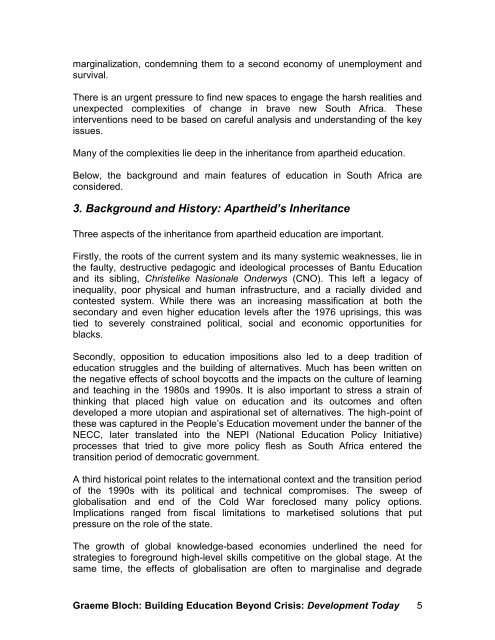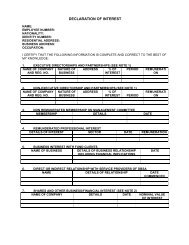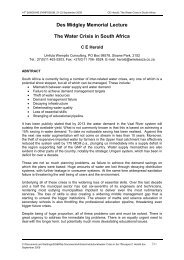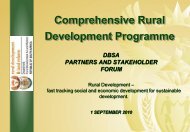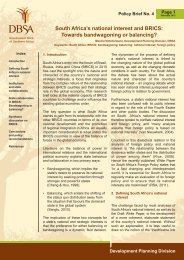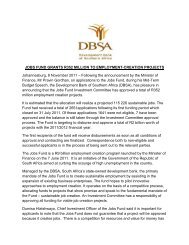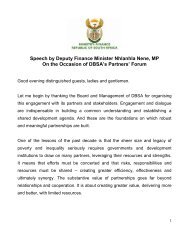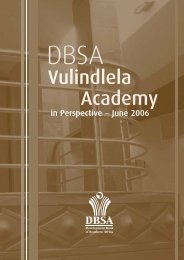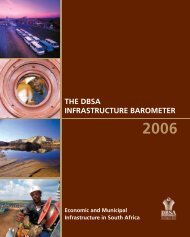Building education beyond crisis.pdf
Building education beyond crisis.pdf
Building education beyond crisis.pdf
You also want an ePaper? Increase the reach of your titles
YUMPU automatically turns print PDFs into web optimized ePapers that Google loves.
marginalization, condemning them to a second economy of unemployment andsurvival.There is an urgent pressure to find new spaces to engage the harsh realities andunexpected complexities of change in brave new South Africa. Theseinterventions need to be based on careful analysis and understanding of the keyissues.Many of the complexities lie deep in the inheritance from apartheid <strong>education</strong>.Below, the background and main features of <strong>education</strong> in South Africa areconsidered.3. Background and History: Apartheid’s InheritanceThree aspects of the inheritance from apartheid <strong>education</strong> are important.Firstly, the roots of the current system and its many systemic weaknesses, lie inthe faulty, destructive pedagogic and ideological processes of Bantu Educationand its sibling, Christelike Nasionale Onderwys (CNO). This left a legacy ofinequality, poor physical and human infrastructure, and a racially divided andcontested system. While there was an increasing massification at both thesecondary and even higher <strong>education</strong> levels after the 1976 uprisings, this wastied to severely constrained political, social and economic opportunities forblacks.Secondly, opposition to <strong>education</strong> impositions also led to a deep tradition of<strong>education</strong> struggles and the building of alternatives. Much has been written onthe negative effects of school boycotts and the impacts on the culture of learningand teaching in the 1980s and 1990s. It is also important to stress a strain ofthinking that placed high value on <strong>education</strong> and its outcomes and oftendeveloped a more utopian and aspirational set of alternatives. The high-point ofthese was captured in the People‘s Education movement under the banner of theNECC, later translated into the NEPI (National Education Policy Initiative)processes that tried to give more policy flesh as South Africa entered thetransition period of democratic government.A third historical point relates to the international context and the transition periodof the 1990s with its political and technical compromises. The sweep ofglobalisation and end of the Cold War foreclosed many policy options.Implications ranged from fiscal limitations to marketised solutions that putpressure on the role of the state.The growth of global knowledge-based economies underlined the need forstrategies to foreground high-level skills competitive on the global stage. At thesame time, the effects of globalisation are often to marginalise and degradeGraeme Bloch: <strong>Building</strong> Education Beyond Crisis: Development Today 5


